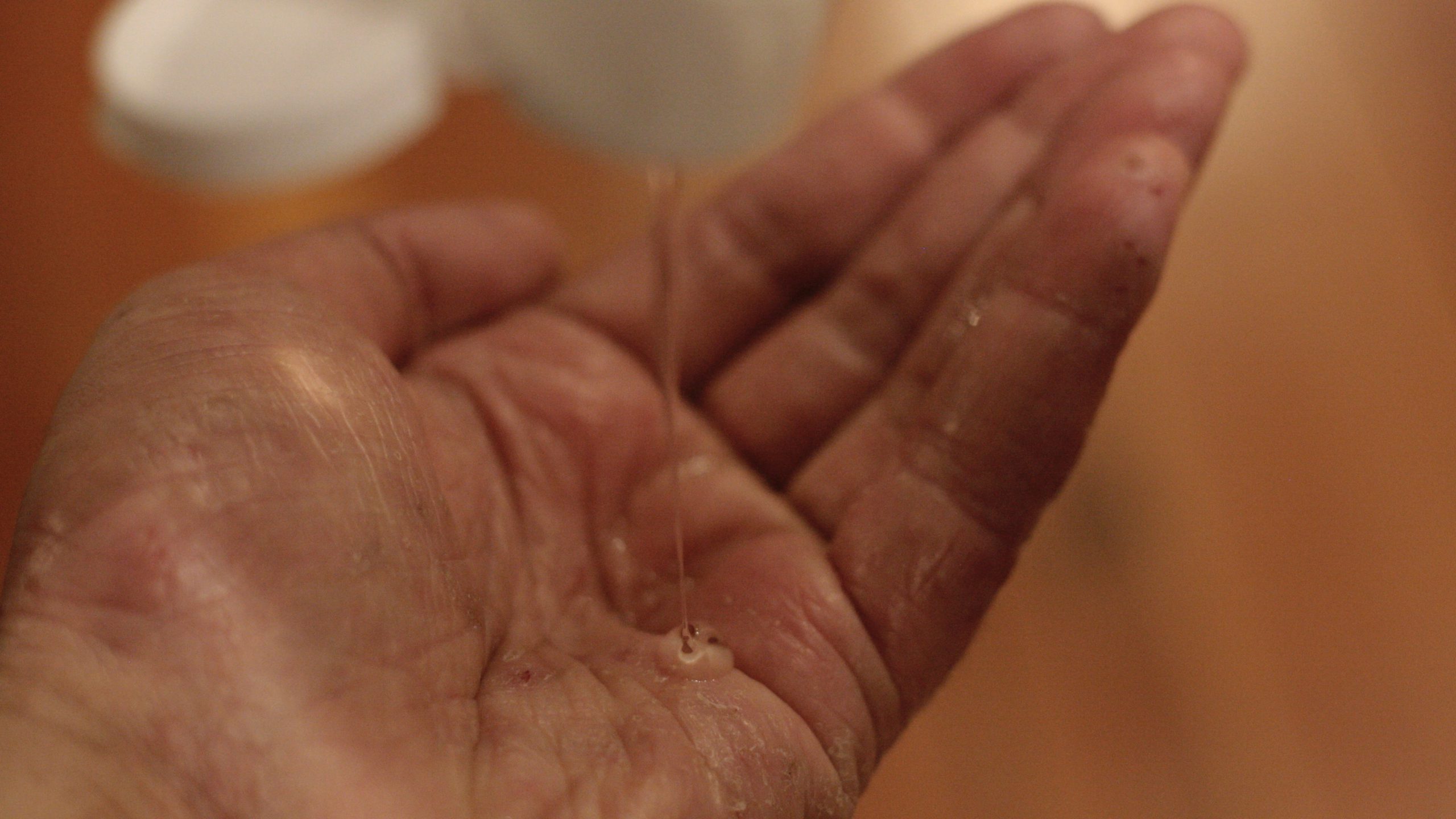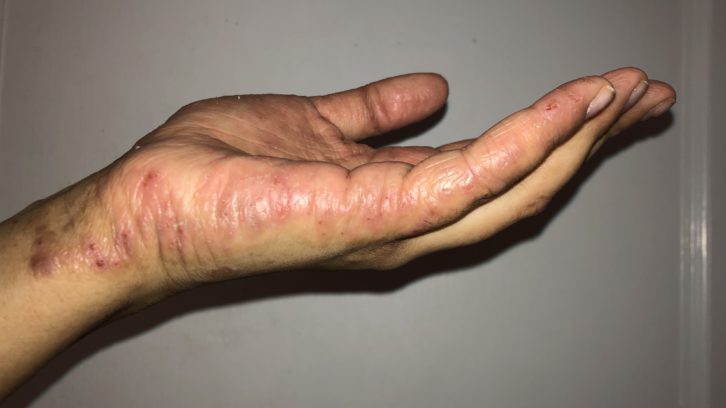If frequent hand washing is hard on your hands, here’s what you can do about it
Dermatologists are seeing more patients with eczema-like symptoms on their hands

caption
Hand sanitizer being pored on hands that show signs of eczema.The steps Brittany Young takes to protect herself from COVID-19 are causing her pain.
One week her hands feel fine, but another week they’re covered in red spots, cracks and dry patches.
“It just hurts. They bleed all the time,” said Young, 20, an instructor at a preschool in Halifax.
Young has eczema, but she said it never spread to her hands until this year. She’s been using more hand sanitizer since March, when COVID hit Nova Scotia. Due to her job, she needs to wash her hands about every 30 minutes. Related stories
For Young, there is a clear link between the state of her hands and her use of hand sanitizer.
“I think it started from using hand sanitizer,” she said, “and it is now getting worse because of it too.”
Young’s worries about her hands may not surprise Dr. Kerri Purdy, a dermatologist in Halifax and past president of the Canadian Dermatology Association.
“Overall, more people are having irritations from hand sanitizer and hand washing,” Purdy said.
Purdy said she’s seen an increase in the number of patients coming in due to a flare-up with their hands. This includes people with pre-existing skin conditions and those without. There was a spike in the early days of the pandemic, but now there’s a second wave as the weather becomes drier and colder.
Compared to other years, patients who already have problematic skin conditions in the winter are starting to see the signs earlier, Purdy said.

caption
Side of a hand with eczema.Hand dermatitis or hand eczema is a common inflammatory skin disorder of the hands. Approximately 15 to 20 per cent of Canadians suffer from eczema, according to the Canadian Dermatology Association.
Dr. Ashley O’Toole, another dermatologist, said people who never had eczema but are now seeing their hands show eczema-like symptoms are probably experiencing contact dermatitis, an allergic reaction to something your skin has been in contact with.
“We have a lot of new patients that are getting new onset hand dermatitis,” said O’Toole, with the SKiN Laser Clinic and the SKiN Centre for Dermatology in Peterborough, Ont.
Purdy doesn’t blame hand sanitizers alone for the skin problems, but anything that repeatedly affects and attacks the barrier of your hands.
“If you think about your skin like a brick wall,” she said, “people that have eczema don’t have a normal brick wall, the mortar between the bricks is sometimes a bit crumbly. So if you add frequent hand washing, you’ve got water going in and hydration going out, which doesn’t really allow that wall to get repaired.”
Prevention
In order to make sure that wall doesn’t break, Purdy said, you have to use creams as often as possible after washing your hands. She suggests using fragrance-free lotions and soaps instead of unscented products, which may include an ingredient to cover the smell.
To help minimize or prevent flare-ups on hands, O’Toole recommends using bar soap instead of liquid soap. She said bar soaps have fewer preservatives in them so they’re more gentle on the skin. She recommends a soap like Dove Sensitive hands.
The Eczema Society of Canada has its own recommended list of lotions and soap.
The Centers for Disease Control and Prevention recommends that we wash our hands with soap and water for at least 20 seconds. Purdy said if you are experiencing a flare-up, instead of reducing the amount of time you wash your hands, you should protect them from unnecessary contact with water.
“Try to wear gloves to protect your hands from that excess water,” she said.
Purdy isn’t dismissing the use of hand sanitizer either. If your hands are not too hurt, using it regularly will help your skin get used to it.
“In the right circumstances regular use of hand sanitizer is probably pretty good. It’s difficult when people have all of those deep cracks, but before that happens, using hand sanitizer regularly is not bad,” she said.
Young is using lotions prescribed by her doctor, along with regular fragrance-free hand lotions. Her doctor recently recommended she rub a thick layer of lotion on her hands before she goes to sleep and wear 100 per cent cotton gloves overnight to help give a deeper hydration to her hands.
She knows it’s not an option to stop frequently cleaning her hands.
“You can’t put your hands away, you know.”
About the author

Kheira Morellon
Kheira is a french immigrant currently living in Halifax. She is passionate about languages and is looking to bring more coverage to the Franco-Canadian...
